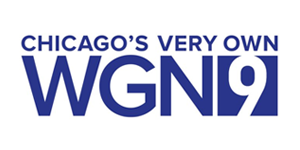
Learn More
Do I Need a Lawyer After a Hit and Run?
A hit-and-run accident occurs when the vehicle driver has an accident and leaves the scene. The driver may have collided with another automobile, object or person. In Illinois, a person involved in an accident that results in property damage, injury or death must stop immediately and remain at the crash site. They must give aid or seek help for any injured people in the collision.
State law also requires the driver to provide their name, address, vehicle registration number and the vehicle owner’s name if it differs from the driver. A driver who leaves the scene of an accident can face criminal charges and penalties and risks having their driver’s license suspended. The consequences are more severe when the accident involves injuries or deaths.
The victim of a hit-and-run may seek compensation for the damages resulting from the accident and may file a claim against the at-fault driver’s insurance. Under Illinois law, all drivers must have automobile liability insurance with the required minimum limits. For bodily injury or death to one person in the accident, the vehicle must have at least $25,000. If two or more people die in one accident, the minimum liability limit is $50,000. If the at-fault driver damaged another person’s property in the collision, the coverage on the insurance policy must have at least a $20,000 limit.
In hit-and-run accidents, the at-fault parties leave the scene without providing their contact information, making it difficult to identify them. If someone can get the license plate number, it may be possible to find the hit-and-run driver.
Unfortunately, the victim and law enforcement may never find out who the at-fault driver is. In such cases, the victim can file an insurance claim against their insurance to receive compensation for their injuries and damages. When the at-fault driver and vehicle are unknown, the victim can recover from their uninsured motorist coverage (UM), which is additional insurance coverage required by state law.
Insurance companies review the accident claims and determine fault, liability and amount of compensation. If the insurance carrier denies the claim or offers an award that the claimant disagrees with, the victim may file a lawsuit to recover the damages. The injured party can represent themself in the insurance claim process and court; however, cases involving hit-and-run accidents and insurance can become complex and time-consuming.
State law does not require a party to have a lawyer to seek compensation for a hit-and-run accident. The claimant may proceed with the claim or case as a pro se party, which means that the party represents himself. However, it is best to have an attorney with the knowledge and experience to handle the case.
When a person represents themselves in a legal action, they are subject to the same court procedures, deadlines and processes as licensed attorneys are. Attorneys’ roles are to represent their client’s interests and protect their rights. Lawyers are trained to negotiate and advocate for clients with an understanding and application of the law.
Other Car Accident FAQs
- Can I Recover Compensation For My Injuries If I Was Partially At Fault For Causing An Accident?
- Do I Need a Lawyer After a Hit and Run?
- How Long After A Car Accident Do Injuries Appear?
- How Much Insurance Coverage Do I Need In Illinois?
- How Much Time Do I Have To File A Claim For My Car Accident?
- Should I Accept an Insurance Company’s Settlement Offer After a Car Accident?
- What Are The Most Important Steps To Take After A Car Accident?
- What Can I Get For My Neck Injury From My Car Accident?
- What Documents Do I Need To Show As Evidence?
- What Injuries Can A Car Accident Cause?
- What Options Do I Have After Being Injured In A Car Accident?
- What Should I Look For in a Car Accident Lawyer?
- What Should You Do After A Car Accident With An Injury?
- What Types Of Damages Can A Person Claim?
- When Do I Need An Attorney For Car Accident Injuries?
- Who Can Be Held Responsible For a Car Accident?




SEEN ON:







